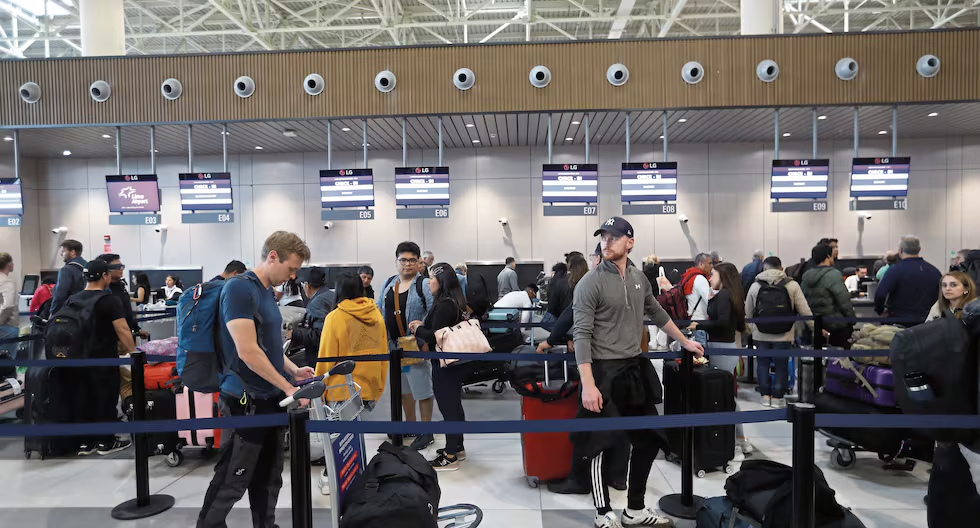(Picture: Disclosure)
Wholesale Price Index (IPIM) Shows Slight Acceleration, While Construction Costs See Significant Increase
Similar to retail inflation, wholesale prices in Argentina accelerated in February compared to January. In the second month of the year, the Wholesale Price Index (IPIM) showed an average increase of 1.6%, slightly above the 1.5% observed in January. With this, over the last 12 months, wholesale prices accumulated an advance of 32.7%, remaining below consumer prices, which reached 66.9%, as reported by INDEC (National Institute of Statistics and Census) this Tuesday.
The variation in the wholesale index in February was driven by a 1.7% increase in national products and a 0.5% variation in imported products. INDEC publishes three types of indices on wholesale prices:
Wholesale Price Indices: IPIM, IPIB, and IPP
- Wholesale Price Index (IPIM): Measures the variation in prices at which producers and importers sell in the domestic market, including taxes. This index showed an increase of 1.6% in February and 32.7% year-on-year.
- Basic Domestic Wholesale Price Index (IPIB): Excludes the tax effect of IPIM. In February, it showed an increase of 1.9% and 30% compared to the previous year.
- Producer Basic Price Index (IPP): Calculates the variation in the values of local production, without taxes. This component registered an increase of 2.1% in February and a year-on-year variation of 32.9%.
Among national products, the divisions with the greatest impact on IPIM were agricultural products (0.43%), food and beverages (0.29%), refined petroleum (0.25%), tobacco (0.12%), and motor vehicles, bodies, and spare parts (0.10%).
Wholesale Inflation as an Indicator of Consumer Inflation
The evolution of wholesale prices is an important piece of data, as it generally anticipates the behavior of retail inflation, that is, consumer prices. According to data also released by INDEC last Friday, consumer inflation in February was 2.4%, accumulating 66.9% in the last 12 months.
The monthly variation in consumer inflation showed an acceleration of 0.2 percentage points compared to January, as predicted by economists due to the impact of the increase in meat prices, which has a significant weight in the Food and Beverages sector. The accumulated CPI in 2025 is 4.7%.
Significant Increase in Construction Costs
Along with the wholesale inflation data, INDEC also released the construction cost index (ICC) for the Greater Buenos Aires (GBA) region for February. In this case, the increase was significant, around 2.3%. The indicator showed a rise of 1.4 percentage points compared to January, which had closed at 0.9%.
This result is a consequence of an increase of 1.9% in the materials item, 2.7% in the labor item, and 2.1% in the general expenses item.
The survey points to increases of 9.5% in bricks and other ceramic products; 3.8% in copper, lead, and tin products; 3.4% in aggregates (sand, stones, gravel); 2.7% in raw wood and wood for roofs and floors; 2.6% in iron pipes and fittings; 2.2% in faucets and valves; 1.8% in sanitary ware, and 1.7% in wooden frames.
On the other hand, there were slight decreases in carpet flooring (-2.7%), fire-fighting equipment (-1%), insulating products (-0.7%), and paints (-0.4%).
The official body highlighted that the monthly variation in construction costs incorporates the new values established by the salary agreement of the Construction Workers’ Union of the Argentine Republic (UOCRA), dated February 14, 2025, “applicable to all labor categories, plus a non-remunerative and extraordinary bonus,” it detailed.
Resumo em Português:
Em fevereiro, a inflação atacadista na Argentina acelerou para 1,6%, enquanto o custo da construção subiu 2,3%, ambos apresentando aumentos em relação a janeiro. O IPIM (Índice de Preços por Atacado) acumulou alta de 32,7% em 12 meses, ainda abaixo da inflação ao consumidor (66,9%). O aumento do IPIM foi impulsionado por produtos nacionais. O custo da construção na Grande Buenos Aires teve alta devido ao aumento nos materiais, mão de obra (influenciada por acordo salarial) e despesas gerais.
Resumen en Español:
En febrero, la inflación mayorista en Argentina se aceleró al 1,6%, mientras que el costo de la construcción subió un 2,3%, ambos presentando aumentos en relación a enero. El IPIM (Índice de Precios al por Mayor) acumuló un alza del 32,7% en 12 meses, aún por debajo de la inflación al consumidor (66,9%). El aumento del IPIM fue impulsado por productos nacionales. El costo de la construcción en el Gran Buenos Aires tuvo un alza debido al aumento en los materiales, la mano de obra (influenciada por acuerdo salarial) y los gastos generales.




